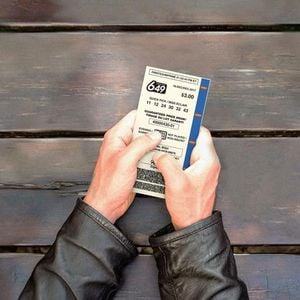In a recent session of the National Assembly, the discussion surrounding the amended Chemical Law took center stage, with significant focus on clarifying the definition of "hazardous chemicals." Vice Chairman Le Minh Hoan presided over the proceedings, emphasizing the need for precise regulations to enhance public safety.
During the session, Chairman of the Committee for Science, Technology, and Environment, Le Quang Huy, reported that there were calls for a clearer explanation of the term "hazardous chemicals." He noted that the draft law has been revised to define hazardous chemicals as those that pose risks to human health, property, and the environment, possessing at least one hazardous characteristic according to the classification principles set by the Ministry of Industry and Trade.
Moreover, the National Assembly's Standing Committee acknowledged that substances such as cyanide, mercury, and precursor chemicals for drugs require special control due to their potential dangers. The draft law aims to enhance regulations surrounding these substances to prevent misuse and ensure public safety.
In response to concerns raised, the draft law includes provisions to implement a roadmap for banning harmful chemicals that pollute water sources, as outlined in conclusion No. 36-KL/TW. Huy indicated that the law also incorporates measures to promote green chemistry principles in technology design and to support the transition to a circular economy.
Member of Parliament Tran Khanh Thu from Thai Binh province highlighted the necessity for stricter penalties for violations related to hazardous chemicals. She urged the drafting committee to review and categorize special chemicals, banned substances, and hazardous materials more thoroughly during research and production phases. She proposed that harsher penalties should be applied to serious violations that adversely affect human health and the environment.
Furthermore, Thu emphasized the importance of tracking the origin of hazardous chemicals and managing their transportation through electronic invoices and product traceability. She pointed out that existing regulations lack specificity and do not adequately address the seriousness of violations in the chemical business sector.
Referencing the Chemical Law of 2007, which was amended in 2018, and Government Decree 113/2017/ND-CP, she noted that while there are rules requiring a control slip for the purchase of cyanide, the law does not specify the conditions individuals or organizations must meet to buy or use cyanide. This gap in regulation has led to widespread and uncontrolled sales of cyanide, culminating in several tragic poisoning incidents.
Thu added that many countries have strict regulations governing cyanide management, categorizing it according to its level of danger and intended use. She suggested that businesses wishing to produce or import cyanide should be required to register their specific purposes, quantities, and risk management measures. Many cyanide compounds are widely banned and can only be used in specialized industries such as gold mining, where stringent safety protocols are enforced.
Another parliamentarian, Thach Phuoc Binh from Tra Vinh province, raised concerns about the misuse of social media and e-commerce platforms for selling hazardous chemicals, particularly drug precursors and flammable substances. He proposed adding a new provision to the law that would prohibit the exploitation of digital platforms for the illegal advertisement and sale of hazardous chemicals.
Binh's comments reflect a growing concern among lawmakers about the anonymity and difficulty of tracing illegal chemical transactions online, which pose risks to chemical safety and community health. He urged for clearer regulations to manage these digital sales effectively.
Additionally, several lawmakers called for the inclusion of more prohibited acts in the draft law related to the use of harmful chemicals that directly impact crops, thereby affecting the environment and public health. They stressed the need for stricter oversight of chemical imports, requiring proper classification and labeling according to the Ministry of Industry and Trade’s regulations.
During the conclusion of this segment, Vice Chairman Le Minh Hoan acknowledged the consensus among lawmakers regarding the majority of the explanations and adjustments made to the draft Chemical Law. He emphasized the importance of incorporating their feedback into the final draft, which will be presented to the National Assembly for approval during the current session.
Hoan also highlighted the need for a strategic approach to chemical industry development, advocating for the application of green chemistry principles and the establishment of safety management standards. He called for enhanced international cooperation in the field of chemicals and the development of priority sectors within the chemical industry.
As the legislative process unfolds, the emphasis remains on ensuring that the regulations surrounding hazardous chemicals are thorough, enforceable, and effectively protect public health and safety. The discussions in the National Assembly reflect a proactive approach to addressing the complexities of chemical management and the associated risks.




